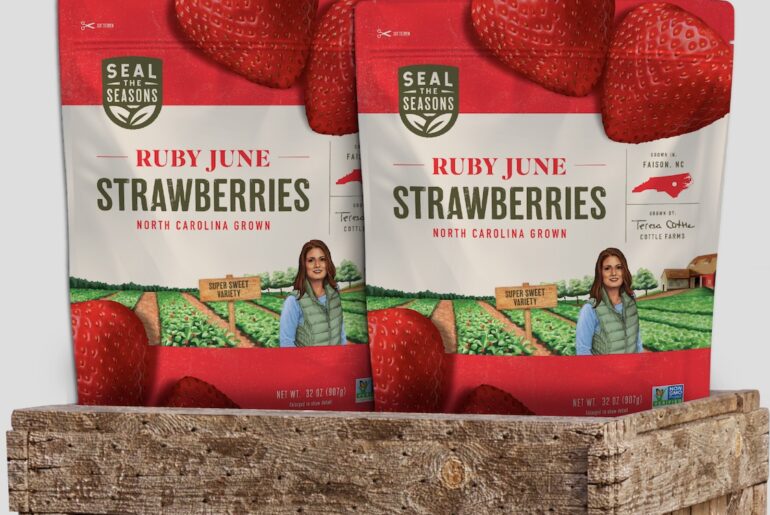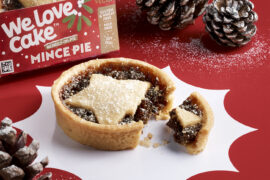North Carolina-grown Ruby June Strawberries are currently in stock at approximately 1,500 grocery store freezer sections across the US East Coast. They are promoted as 50% sweeter than commercial strawberry varieties that are traditionally frozen, such as Camino Reals and Ambrosias.
Strawberry sweetness is measured through Brix, and the Ruby June variety is near the top of the scale at a 12 or 13 Brix measurement. [One degree Brix is one gram of sucrose in 100 grams of solution, and represents the strength of the solution as percentage by mass.]
Developed at Lassen Canyon Nursery and botanically known as Fragaria x ananassa, the Ruby June variety has a deep dark red exterior and interior, with a sweet, luscious flavor that can be smelled upon opening a bag of frozen strawberries.
“Several years ago, we decided to go after a more flavorful berry. After multiple varietal testings, we found the perfect variety. Ruby June has an excellent flavor profile and great characteristics including size, color and most importantly, flavor,” explained family farmer Teresa Cottle, who grows the strawberry in Faison, North Carolina.
The new variety is distributed under the Seal the Seasons brand packed by the Durham, North Carolina-headquartered company of the same name that believes the best produce comes from local farms.
“I am so proud of our team’s hard work over the last 12 months to bring this variety to market,” said CEO Patrick Mateer. “It took careful planning with Ron and Teresa over at Cottle Farms to grow the hundreds of thousands of pounds needed for our customers.”
Initial launch retail clients include Harris Teeter, Wegmans, Food Lion, Whole Foods, Lowes Foods, Ingles Markets and Weaver Street Market Co-op.
Seal the Seasons is reportedly one of the only brands showing double digit dollar sales growth over all 4-, 12-, 24- and 52-week periods in both multi outlet (MULO) and the natural food store channels. Thi growth is especially strong given the flat MULO category and slump in the natural channel for frozen fruit sales nationwide. The company currently has more than 65 unique local SKUs available, supporting over 70 farms and utilizing 12 freezing and packing sites across the United States.





